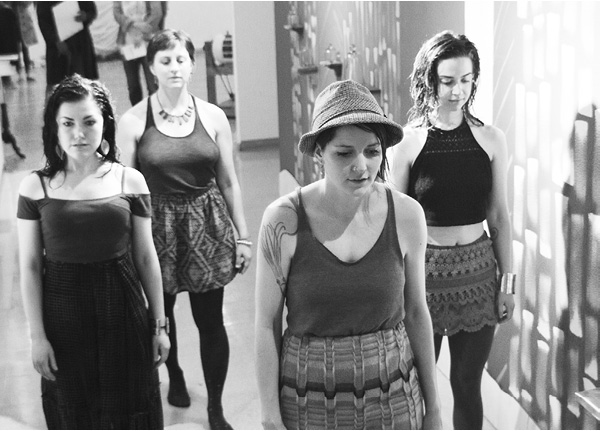
WESTERN DRIVE
first performed on May 8, 2015
The Center for Book and Paper Arts, Chicago, IL
performed four times in 2015
KELLEN WALKER
Kristin Hatleberg, Penelope Hearne, Emily Rose, Lucia Mier Y Teran Romero, Darkest Wonder
Chicago, IL / Fort Worth, TX / Seattle, WA / Beacon, NY / New Orleans, LA
438946795w438946795e438946795s438946795t438946795e438946795r438946795n438946795d438946795r438946795i438946795v438946795e438946795c438946795o438946795l438946795l438946795a438946795b438946795o438946795r438946795a438946795t438946795i438946795o438946795n438946795s438946795@438946795g438946795m438946795a438946795i438946795l438946795.438946795c438946795o438946795m
WESTERN DRIVE
KELLEN WALKER
“Western Drive” is a self-portrait of place told through the lens of perfume and performance art. Both create a monument out of a road leading to land stewarded by my grandfather. The medium of scent holds a powerful, emotive conduit to reinvigorate past experiences, specifically my grandfather’s teachings lying dormant in this road.
“Western Drive” began with natural smells applied to the body in an intentional process. I collaborated with three dancers to construct two perfumes which referenced the geography of “Western Drive.” I made each scent by hand with high quality, perfume-grade essential oils sourced from specific trees, quoting the flora near the road. Dancers scented their bodies, clothing, and hair with Texas cedar and oakmoss in an offstage ritual. The scents were then dispersed as the dancers moved to, from, and through the performance space.
In the performance of “Western Drive,” scent and sound abstractly illustrated the road and its surrounding memories. The performance space was warmed with humidity and dimly lit with a blue jewel tone. An ambient musical score mixed with blues guitar began the narrative to a scattered audience sitting on tree stumps or standing faced in different directions. Dancers entered with the trail of scent of cedar and barely-detectable oakmoss, the first notes of the performance’s perfume, “1351.” In scented choreography, they applied juniper berry, the final aromatic note of “1351,” on exposed skin as the musical score and spoken word provided context of the land. Audial and olfactory landscapes were abstractly painted by the dancers’ scented movement, the fading perfumes on the dancers’ bodies, and the non-fiction story of the rural road spoken by me with accompanying sound score to heighten emotional tones. The audience listened and breathed as the sound and smells shifted onstage. Their inhalations subconsciously embodied the land, its ancestors, and the grounding air deliberately re-created in the poetic, sensory experience. “Driftwood Bonfire,” the second fragrance of “Western Drive,” entered like wildfire at the story’s finale. The smoky smell longed for campfires built by my late grandfather before the property was sold. It symbolized loss, drought, and trauma inflicted upon the land as ownership switched and impermanence prevailed. Once the “Driftwood Bonfire” aroma faded, a sudden realization of mortality arose. The performance ended with the memory of the body’s ephemeral silage.